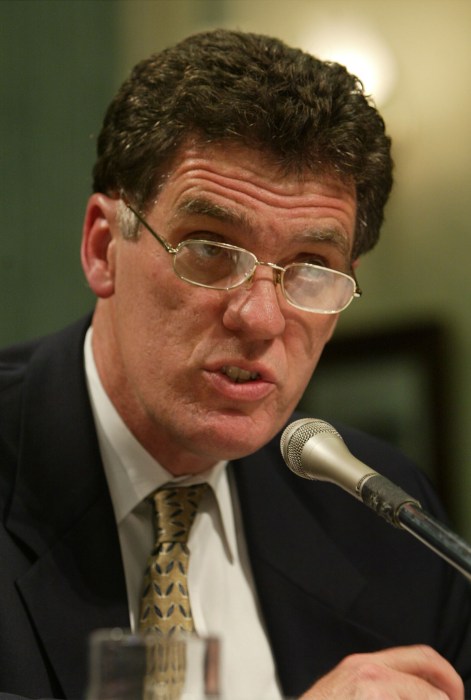Recent Panel Addresses Measures to Stop Heroin Sales
Growing concerns over Nassau County’s current heroin epidemic served as the main focus in a recent community forum held at the Old Bethpage/Plainview library this past Thursday evening on April 29.
On hand to present the issues of public concern were County Legislator Joe Belesi, Police Commissioner Lawrence Mulvey and Second Deputy Commissioner William Flanagan.
Mulvey said his office plans to combat the social ills caused by heroin with a three-pronged approach – police enforcement, parental awareness, and education.
He voiced the majority decision that heroin is a key problem in the county, but he went a step further.
“County Executive Ed Mangano, my boss, has really tackled this problem head on. He along with me, and Joe [Belesi] and his colleagues on the legislature all agree…this is the number one problem.”
Heroin related arrests in Nassau County are steadily on the rise. In 2008, the total number of arrests topped out at 200, but in 2009 that number doubled to 400, a new record, creating a growing speculation that the dangerous drug has reached epidemic proportions. This year there have already been 269 heroin-related arrests as of April 29.
“Now that doesn’t mean that the problem is still peaking and rising,” Mulvey said. “I don’t necessarily believe that’s the case. It’s just that we’ve applied more resources and we are really tackling that problem from a variety of ways.”
It was clear to the commissioner that police work might not be enough to combat the county’s problems.
“We can arrest people every day and we do, but we all believe that will not get us out of this situation,” he said.
Nassau County has had a 6 percent drop in major crimes within the county. Homicides, felony assaults, robberies and auto theft are all down across the county. Only one category is on the rise and that is burglary. Mulvey attributed some of the rise to the growing heroin epidemic.
Though it is tough to say what may be the real cause for the spike in burglaries, it was stated that current economic issues could be playing a role. Even though the tough fiscal situation has forced a limitation in funds for the Nassau County Police Department, it hasn’t deterred them from relegating extra assets to attack this problem by adding more detectives and putting together a task force to enhance enforcement.
To bolster awareness, Nassau County is expediting a campaign of ads and posters across the county, urging parents to talk to their kids about drugs. In addition to going out and speaking to the community in presentations such as these, county officials and the Nassau County Police Department are teaming up with Long Island Council on Alcoholism and Drug Dependence, serving as their main point of contact for the programs and resources available to parents. It is a resource that parents can use to deal with any problems in talking to their kids about drug issues. The organization offers a large variety of information on topics such as drug prevention for teens, underage drinking and, of course, heroin.
Belesi, speaking for a very brief period, said, “We’ve all seen the carnage that this causes for the individual, to the family, to the neighborhood…education is the way out.”
The NCPD has taken $250,000 of available drug forfeiture funds to develop a new program called “Too Good For Drugs,” which provides a school based prevention curriculum that is being promoted to school districts around the county. Commissioner Mulvey hailed this new program as a tool to teach kids to make better choices concerning alcohol, tobacco and drugs.
“We are teaching the school districts how to get this curriculum into their schools,” Mulvery said. “We’re paying for the materials…all they have to do is adopt it and find the time for it.”
Lance Ammonds, a concerned parent from Farmingdale, said, “I do believe the education part is very effective. If you can reduce the demand then it won’t be profitable for the drug dealers. I want to look into that Too Good For Drugs Program with my school.”
Flanagan showed that of the 269 arrests in the county, the highest number occurred in Elmont (18), followed by East Meadow and Freeport, both at 13 respectively.
The biggest problem, Flanagan said, was the casual dealer network where, in some cases, people frequently go to Brooklyn to buy drugs. The police force adjusted their efforts and has adopted a border defense. The NCPD has sent detectives into Brooklyn with sophisticated equipment for more effective police and detective work.
“Where we see them buying drugs, we now have an agreement,” Flanagan said. “We share a tremendous amount of information and intelligence with the NYPD. They recognized that they are our problem.”































